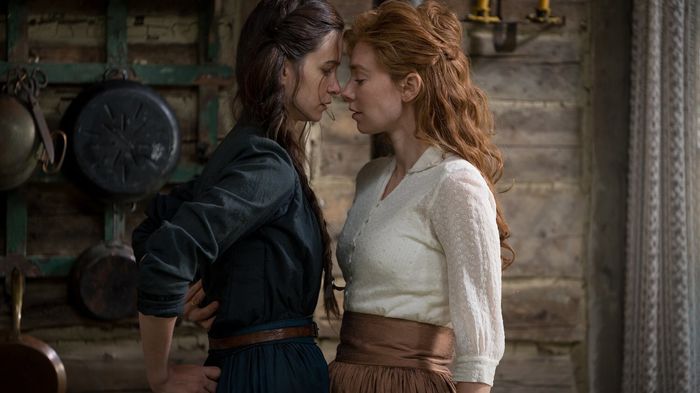The unexpected merits of watching a Christmas movie in April
Columnist Isabella Woolston considers how shifting the time of watching affected her experience with the Christmas-themed film ‘Happiest Season’.
As Easter term starts and the stress of exams competes with the lingering of the summer’s eve, a very tired English student decided it would be the perfect time to watch the heterosexually acclaimed Christmas movie: Happiest Season.
Now, this may have stemmed from a desperation for escapism, a motivation which often compels us to turn to film in times of stress. However, it evolved into a different experience altogether. The calm that watching a Hallmark film in completely the wrong season distilled produced a profound sense of serenity in this writer, and I wanted to dig deeper into the reasons why.
Happiest Season was released just in time for Christmas 2020, firmly placing it within the temporal restrictions of a Christmas movie. It is an inherently queer film, being directed by lesbian icon Clea DuVall of But I’m a Cheerleader fame and starring Kristen Stewart — who needs no introduction. The film also stars Dan Levy, who has won multiple GLAAD awards for his writing and performance in Schitt’s Creek. The film centres around the lesbian couple Abby and Harper in a meet-the-parents romcom with a twist: Harper’s parents don’t actually know that Harper is gay, while Abby was ready to ask for their blessing of their marriage.
However, at the time of its release, gay audiences were left disillusioned at the relationship between Kristen Stewart and Mackenzie Davies’ characters. Critics and audiences alike argued that the crux of the movie — Davies’ character Harper asking her girlfriend, Stewart’s Abby, to revert into the closet while the pair stayed with her ‘traditionally oriented’ family over Christmas —was the main flaw and unrealistic. However, I feel as though taking this movie out of the Christmas context makes this situation more acceptable and therefore the film overall more enjoyable.
Now, bear with me; I am aware that watching a Christmas movie outside of the period to some is akin to a kind of jarring blunder, watching a horror movie while eating breakfast, if you will. And yet, Happiest Season exists based upon humour and awkwardness that is a forced family gathering, a feeling that no one would voluntarily subject themselves to more of while in the Christmas season. The very nature of Christmas movies romanticizes the season, meaning watching a film about the joy of Christmas while you might not necessarily be having the best one can be very disheartening.
“This is the crux of it: the shift in viewing time allows for a perspective shift in the audience where the heart of the film is allowed to emerge.”
Bringing both the plot and the characters out of this restrictive bubble allows for them to become more fully realised. An audience watching Happiest Season in May is no longer being bombarded by the stereotypes of Hallmark movies, allowing for it to feel far fresher. Abby’s Scrooge-like hatred of Christmas is admittedly derived from the formulaic nature of most Christmas movies, but viewing Happiest Season as a movie that happens to be set over Christmas instead allows for Abby’s season-related misery to become more of a genuine character trait that links into her background. This is the crux of it: the shift in viewing time allows for a perspective shift in the audience where the heart of the film is allowed to emerge.
Harsher critics often overlook the fact that DuVall’s film is semi-autobiographical. However, in the light of spring, this authenticity is beautifully perceptible. Harper’s fear of coming out, while tragic, is extremely familiar to the LGBTQ community. A resentment towards coming out narratives has built up in queer audiences, as when handled by straight directors, movies like Love Simon appear reductive and rose-tinted.
However, it is clear that DuVall knows that coming out is more than just one event, and that the majority of the experience is overcoming complete internal paralysis before it begins to permanently affect yourself and others around you. In light of this Happiest Season can be considered inherently realistic in its understanding of the queer struggle.
While Happiest Season does a great job of aligning with its comedic genre, it also empathises with the fear that can lead to selfish acts of self-preservation that Harper enforces on both Abby and Aubrey Plaza’s character, Riley. This is genuinely refreshing to see, especially as most coming out narratives churned out by studios for brownie points romanticise such moments, opting for one big conversation where the obstacle is always portrayed as external rather than the internal battle that it can often be.
I feel as though this nuance is lost amongst the jingle bells and gift-giving of the Christmas season, and therefore can be appreciated far more throughout the year.
 News / SU reluctantly registers controversial women’s soc18 December 2025
News / SU reluctantly registers controversial women’s soc18 December 2025 News / CUP announces funding scheme for under-represented academics19 December 2025
News / CUP announces funding scheme for under-represented academics19 December 2025 Features / Should I stay or should I go? Cambridge students and alumni reflect on how their memories stay with them15 December 2025
Features / Should I stay or should I go? Cambridge students and alumni reflect on how their memories stay with them15 December 2025 Fashion / The art of the formal outfit 18 December 2025
Fashion / The art of the formal outfit 18 December 2025 News / Dons warn PM about Vet School closure16 December 2025
News / Dons warn PM about Vet School closure16 December 2025










